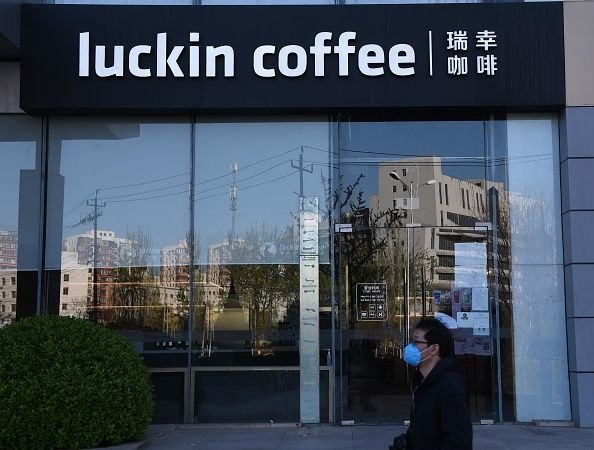Luckin Coffee: A Fallen Angel Rising Again?
Chinese coffee chain Luckin Coffee, a fallen angel, may be ready to rise again. According to Quo Vadis Capital President John Zolidis, a long-term bear in the stock has recently turned bullish.
Once, Luckin Coffee was the envy of the momentum crowd on Wall Street. It saw the fast-growing Chinese coffee chain as the next Starbucks, ready to dominate the emerging market for coffee in the world's most populous nation.
Then came the news in early 2021 that financial statements didn't add up, placing the company on the regulators' radar both at home and in the U.S., where its shares were listed.
Soon after, Luckin Coffee had to file for bankruptcy protection under U.S. Chapter 15, which sent its shares on a tailspin. Zolidis was among the first equity analysts, who sounded the alarm on Luckin Coffee's accounting issues, and he stayed bearish while the company was under bankruptcy.
But he turned bullish after the company emerged from bankruptcy in April of 2022, arguing that Luckin's "shares offer an uncorrelated upside opportunity driven by company-specific factors not dependent on US or China macro," in a research note to his subscribers.
What's behind this radical change in mind?
A turnaround in Luckin's business combined with low valuations. "Shares offer an uncorrelated upside opportunity driven by company-specific factors not dependent on U.S. or China macro," Zolidis says. "Business performing exceptionally well despite Covid lockdowns, dramatically better than public competitors and above our model. Unit growth and economics are outstanding. Valuation is very attractive and see potential double."
He thinks the catalyst for these significant gains could be the relisting of the company's shares in major U.S. exchanges in 2022.
Investors sifting through the OTC markets for bargains seem to share Zolidis's enthusiasm for the fallen Chinese coffee shop chain. Thus far this year, Luckin's shares have gained 12.3% compared to 3.6% of Starbucks shares.
Still, a couple of issues could keep the coffee chain from returning to its old glory days on Wall Street. One of them is the company's business model. It has "coffee to go" at its core instead of the "third place," as is the case for Starbucks' business model.
While "coffee to go" is a simpler business model, it isn't sustainable. Instead, it turns coffee into a "commodity," leads to price competition and eliminates economic profits.
Then there's the stigma of accounting irregularities, which will make it hard for the company to regain its old hype among the momentum crowd.
And there's the broader question as to whether China, a tea-sipping nation, will warm up to coffee.

© Copyright IBTimes 2025. All rights reserved.






















